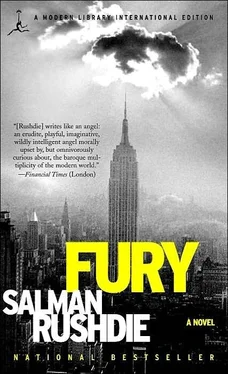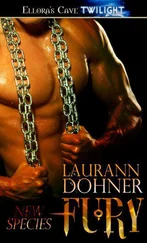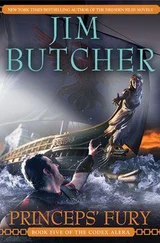Salman Rushdie - Fury
Здесь есть возможность читать онлайн «Salman Rushdie - Fury» весь текст электронной книги совершенно бесплатно (целиком полную версию без сокращений). В некоторых случаях можно слушать аудио, скачать через торрент в формате fb2 и присутствует краткое содержание. Город: New York, Год выпуска: 2002, ISBN: 2002, Издательство: Random House Publishing Group, Жанр: Современная проза, на английском языке. Описание произведения, (предисловие) а так же отзывы посетителей доступны на портале библиотеки ЛибКат.
- Название:Fury
- Автор:
- Издательство:Random House Publishing Group
- Жанр:
- Год:2002
- Город:New York
- ISBN:0679783504
- Рейтинг книги:5 / 5. Голосов: 1
-
Избранное:Добавить в избранное
- Отзывы:
-
Ваша оценка:
- 100
- 1
- 2
- 3
- 4
- 5
Fury: краткое содержание, описание и аннотация
Предлагаем к чтению аннотацию, описание, краткое содержание или предисловие (зависит от того, что написал сам автор книги «Fury»). Если вы не нашли необходимую информацию о книге — напишите в комментариях, мы постараемся отыскать её.
Fury — читать онлайн бесплатно полную книгу (весь текст) целиком
Ниже представлен текст книги, разбитый по страницам. Система сохранения места последней прочитанной страницы, позволяет с удобством читать онлайн бесплатно книгу «Fury», без необходимости каждый раз заново искать на чём Вы остановились. Поставьте закладку, и сможете в любой момент перейти на страницу, на которой закончили чтение.
Интервал:
Закладка:
Yes, but the medication was a mist. It was a fog you swallowed that curled around your mind. The medication was a shelf and you had to sit on it while the world went on around you. It was a translucent shower curtain, like the one in Psycho. Things grew opaque; no, no, that wasn’t right. What became opaque was you. Solanka’s scorn for this age of doctors resurfaced. You wanted to be taller? All you had to do was go to the tall doctor and let him put metal extensions into your long bones. For thinner, there was the thin doctor, the pretty doctor for prettier, and so on. Was that all there was? Was that it? Were we just cars now, cars that could take themselves to the mechanic and get themselves fixed up any way they wanted? Customized, with leopard-spotted seats and wraparound sound? Everything in him fought against the mechanization of the human. Wasn’t this exactly what his imagined world was being created to confront? What could a head doctor tell him about himself that he didn’t already know? Doctors knew nothing. All they wanted was to manage you, to tame you doggy-style or hood you like a hawk. Doctors wanted to push you down on your knees and break them, and once you started using those chemical crutches they handed out, you’d never walk on your own two legs again.
All around him the American self was reconceiving itself in mechanical terms, but was everywhere running out of control. This self talked constantly about itself, barely touching on any other topic. An industry of controllers—witch doctors whose role was to augment and “gap-fill” the work of the already witchy doctors—had arisen to deal with its problems of performance. Redefinition was this industry’s basic mode of operation. Unhappiness was redefined as physical unfitness, despair as a question of good spinal alignment. Happiness was better food, wiser furniture orientation, deeper breathing technique. Happiness was selfishness. The rudderless self was told to be its own steering mechanism, the rootless self was instructed to root itself in itself while, plainly, continuing to pay for the services of the new guides, the cartographers of the altered states of America. Of course, the old industries of control were still available, still making their own, more familiar cases. The vice-presidential candidate of the Democratic party blamed the movies for the national malaise and praised, by contrast, God. God must move closer to the center of the country’s life. (Closer? Solanka thought. If the Almighty got any closer to the presidency, he’d be living at the end of Pennsylvania Avenue and doing the damn job himself.) George Washington was exhumed to be a soldier for Jesus. No morality without religion, George thundered, standing pale and earthy in his grave, holding his little hatchet. And in Washington’s country, the supposedly insufficiently devout citizenry said, when asked, that over ninety percent of them would vote for a Jew or homosexual for president, but only forty-nine percent would vote for an atheist. Praise the Lord!
In spite of all the chatter, all the diagnosis, all the new consciousness, the most powerful communications made by this new, much-articulated national self were inarticulate. For the real problem was damage not to the machine but to the desirous heart, and the language of the heart was being lost. An excess of this heart damage was the issue, not muscle tone, not food, neither feng shui nor karma, neither godlessness nor God. This was the Jitter Bug that made people mad: excess not of commodities but of their dashed and thwarted hopes. Here in Boom America, the real-life manifestation of Keats’s fabulous realms of gold, here in the doubloon-heavy pot at the rainbow’s end, human expectations were at the highest levels in human history, and so, therefore, were human disappointments. When arsonists lit fires that burned the West, when a man picked up a gun and began killing strangers, when a child picked up a gun and began killing friends, when lumps of concrete smashed the skulls of rich young women, this disappointment for which the word “disappointment” was too weak was the engine driving the killers’ tongue-tied expressiveness. This was the only subject: the crushing of dreams in a land where the right to dream was the national ideological cornerstone, the pulverizing cancellation of personal possibility at a time when the future was opening up to reveal vistas of unimaginable, glittering treasures such as no man or woman had ever dreamed of before. In the tormented flames and anguished bullets Malik Solanka heard a crucial, ignored, unanswered, perhaps unanswerable question the same question, loud and life-shattering as a Munch scream, that he had just asked himself: is this all there is? What, this is it? This is it? People were waking up like Krysztof Waterford-Wajda and realizing that their lives didn’t belong to them. Their bodies didn’t belong to them, and nobody else’s bodies belonged to anyone, either. They no longer saw a reason not to shoot.
Those whom the gods would destroy they first make mad. The Furies hovered over Malik Solanka, over New York and America, and shrieked. In the streets below, the traffic, human and inhuman, screamed back its enraged assent.
Showered, a little more settled, Solanka remembered that he still hadn’t called Jack. It struck him that he didn’t want to. The Jack unveiled by Neela had disappointed and unnerved him, which in itself should not have mattered. Certainly, Jack must have been disappointed in him many times, even put off by his famous “Solankering” temper. Friends should hurdle such obstacles; yet Solanka did not pick up the phone. Why, then, he was a bad friend too; add that to the lengthening charge sheet. Neela stood between them now. That was it. Never mind that she had broken off her relationship with Jack before anything had started between her and Solanka. What mattered was how Jack would see it, and he would see it as treason. And, if he was honest with himself, Solanka silently admitted, he saw it as a betrayal, too.
Moreover, Neela was now also an obstacle between himself and Eleanor. He had left home for one apparent and one underlying reason: the horrifying fact of the knife in the dark, and, beneath the surface of the marriage, the erosion of what had once overwhelmed. Furious and newly kindled desire was hard to give up for that calmer, gentler old flame. “There must be someone else,” Eleanor had said; and now there was, there was. Neela Mahendra, the last big emotional gamble of his life. Beyond her, if he lost her as he probably would, he saw a desert, its slow white dunes sliding toward a sandy grave. The dangers of the enterprise, accentuated by the differences in age and background, by the damage in him and the whimsicality in her, were considerable. How does a woman for whom every man hungers decide that one is enough? Near the end of their first night together, she had said, “I wasn’t looking for this. I’m not sure I’m ready for it.” She meant that it had started feeling so deep so fast that it scared her. “The risk might be too big.” He had twisted his mouth a little too sourly. “I wonder which of us,” he asked, “is taking the bigger emotional risk.” She had had no trouble with that question. “Oh, you are,” she said.
Wislawa returned to work. Soft-spoken Simon Jay had called Solanka from his farm to say that he and his wife had soothed the angry house cleaner, but a contrite phone call from Solanka would help. Gentle as he was, Mr. Jay did not fail to point out that the lease required the apartment to be properly maintained. Solanka gritted his teeth and made the call. “Okay, I come, why not,” Wislawa had agreed. “You are lucky 1 am big in the heart.” Her work was even less satisfactory than before, but Solanka said nothing. There was an imbalance of power in the apartment. Wislawa entered like a queen—like a Goddess of Victory who had cut her strings—and after a few hours of wandering around the duplex like a monarch on a royal progress, waving her duster like a royal kerchief, departed with a contemptuous expression on her bony face. Those who formerly served were now the masters, Solanka thought. As on Galileo-1, so also in New York.
Читать дальшеИнтервал:
Закладка:
Похожие книги на «Fury»
Представляем Вашему вниманию похожие книги на «Fury» списком для выбора. Мы отобрали схожую по названию и смыслу литературу в надежде предоставить читателям больше вариантов отыскать новые, интересные, ещё непрочитанные произведения.
Обсуждение, отзывы о книге «Fury» и просто собственные мнения читателей. Оставьте ваши комментарии, напишите, что Вы думаете о произведении, его смысле или главных героях. Укажите что конкретно понравилось, а что нет, и почему Вы так считаете.











